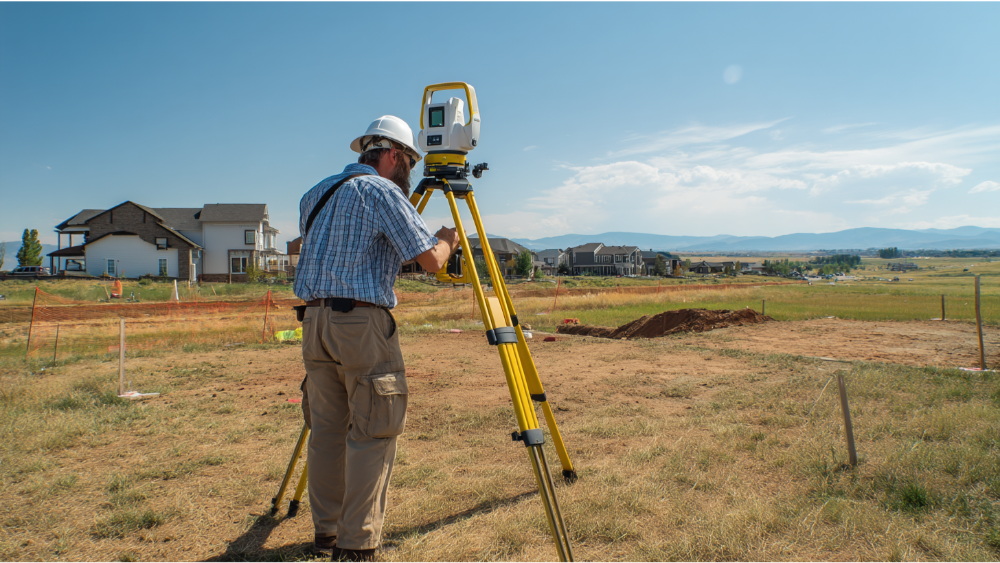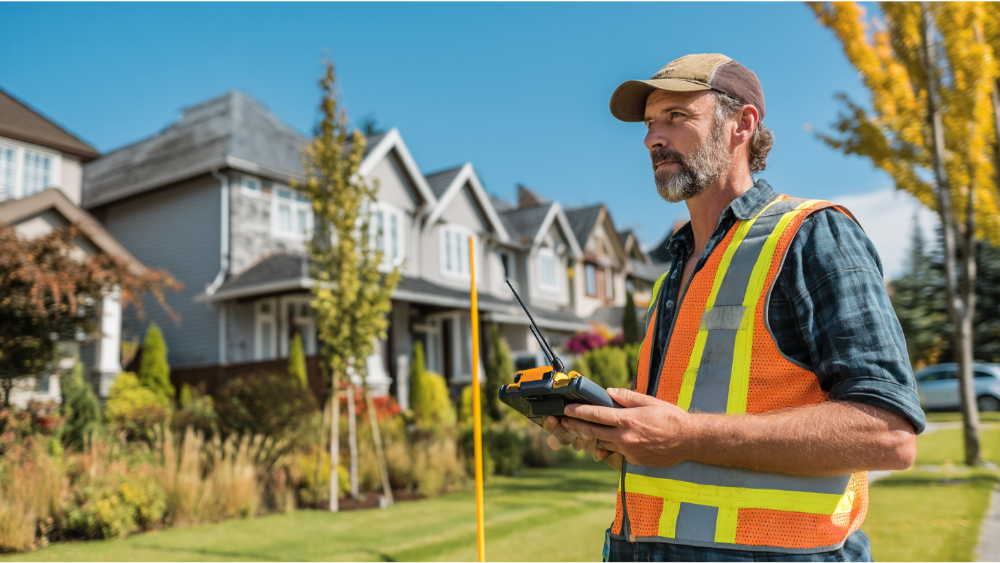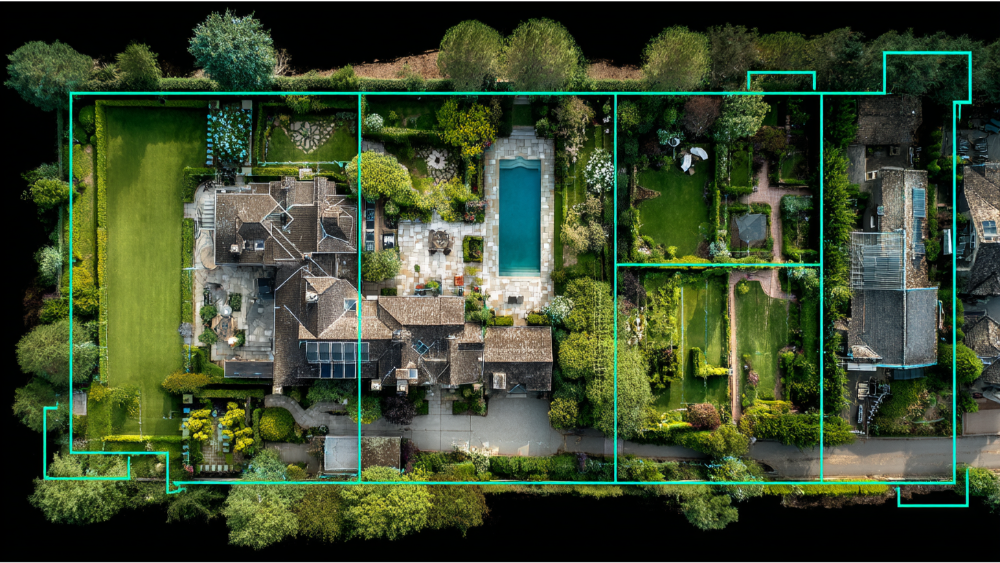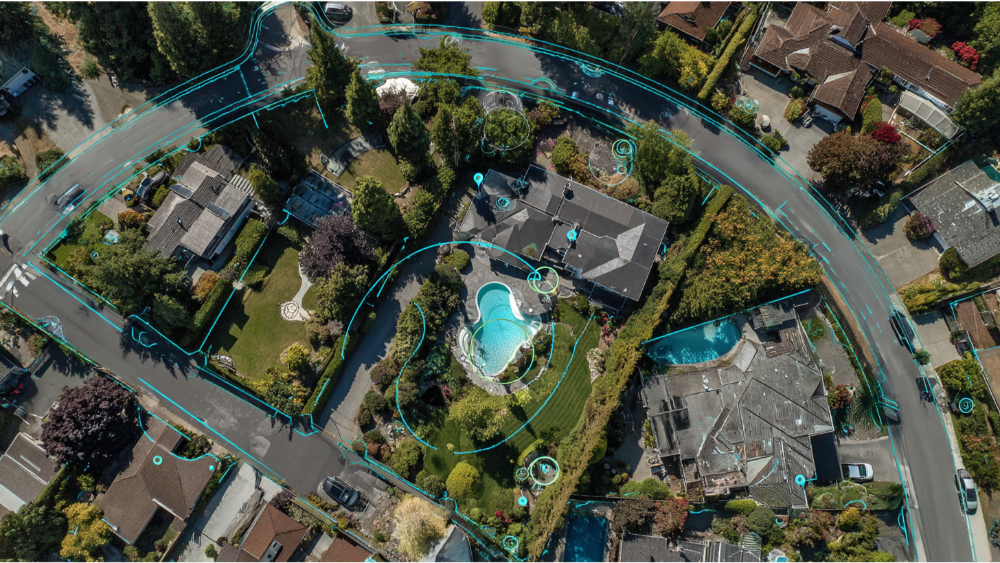Partnered with #1 ADU Builders
Contact Golden State
Drop us a line! We look forward to discussing your next project with you!
Cut the chase! Schedule a face-to-face virtual meeting with us today to dive into your project's next steps.
For our returning clients, experience our streamlined, contact-free project proposal process. Simply fill out our short project questionnaire, and we'll deliver your project proposal within 72 hours.

- Golden State Design & Engineering
- Comment 0
How Do I Get a Land Survey for My Property? A Complete 2025 Guide
Why Getting a Property Survey Matters
If you are buying, building on, or selling land, one of the first questions you should ask is: how do I get a land survey for my property? A professional property survey provides clarity on your property lines, helps you meet legal requirements, and protects you from costly mistakes. Whether you are installing a fence, starting construction projects, or resolving boundary disputes, getting a land survey is a critical first step.
At Golden State Design & Engineering, we help California property owners get accurate, timely land surveys that serve as the foundation for permits, planning, and development. In this guide, we will walk you through the different types of property surveys, the process for getting one, and how to understand property survey cost in 2025.
What Is a Land Survey?
A land survey is a professional assessment that defines the exact location and legal boundaries of a parcel of property. Conducted by a licensed surveyor or licensed professional, a land survey includes measurements, maps, and legal data that verify the position of boundary lines, existing structures, easements, and natural features.
A property survey helps establish boundaries between where your property ends and your neighbor’s begins, supports accurate designs for new structures, and ensures your plans comply with zoning restrictions and local codes.
5 Types of Property Surveys

Not all survey types are the same. The type of survey you need depends on your goals, your property size, and what your local government, lender, or title insurer requires. Remember, the property survey depends on these factors to ensure it meets your specific needs.
1 | Boundary Survey
A boundary survey clearly marks the perimeter of your property lines using permanent markers. It is ideal for fence installation, property disputes, and small residential projects. This is also referred to as a property line survey.
2 | Topographic Survey
A topographic survey goes beyond boundaries to measure elevation, slope, trees, and natural features. It is used to inform construction projects, drainage plans, and grading design.
3 | Mortgage Survey
A mortgage survey is often required by a mortgage lender or title company during a real estate transaction. It verifies that existing structures meet code and are located within the correct land boundaries.
4 | ALTA/NSPS Land Title Survey
Used in commercial and high-value transactions, this survey provides a detailed map of the property, including improvements, easements, and access rights. It is often requested by a title company for a title insurance policy.
5 | Floodplain Surveys
If your property is located near flood-prone areas, a floodplain survey may be required by your city or utility company to ensure compliance with elevation and development rules.
Step-by-Step: How to Get a Land Survey for Your Property

Step 1: Determine Why You Need a Property Survey
Understanding your purpose helps determine the correct type of survey. Are you selling a new property, building a new structure, addressing a neighbor’s property conflict, or complying with a mortgage company request?
If you need a property survey for a real estate closing, you may need a mortgage survey or ALTA survey. If you are planning a construction project, a boundary survey or topographic survey may be required.
Step 2: Locate Existing Property Records
Check for a previous survey in your property deed, title documents, or property records. You can also visit the local tax assessor’s office, local courthouse, or assessor’s office to access property records online. Many local governments now offer GIS-based search tools.
While these documents are helpful for background, they do not replace an official survey conducted by a licensed surveyor.
Step 3: Contact a Licensed Professional Land Surveyor
Hire a professional land surveyor who is licensed to work in your state. In California, you can verify licensure through the Board for Professional Engineers, Land Surveyors, and Geologists. Reputable property surveyors will provide references, timelines, and written quotes.
Ask for a breakdown of services and confirm the type of property survey being performed. [Contact GSDE’s licensed surveyors for a customized quote.]
Step 4: Request a Property Survey Quote
When you request a quote, include the following:
- Site address and APN
- Intended purpose for the survey
- Details about property size, terrain, or access limitations
- Any previous surveyor information or existing drawings
Keep in mind that survey cost can vary significantly depending on the project scope.
Step 5: Schedule the Field Survey
Once the surveyor is contracted, they will schedule a visit to your property using specialized equipment such as GPS, total stations, and drones. Field work usually takes 1 to 5 days based on property size, terrain, and weather conditions.
Step 6: Receive and Review Your Final Survey
Deliverables often include:
- A detailed map or CAD drawing showing property boundaries, structures, easements, and elevation
- A legal document referencing the legal description
- Recommendations for any encroachments or compliance issues
You may need to file your survey with your county or share it with your title company, builder, or mortgage lender for future reference.
How Much Does a Land Survey Cost in 2025?

Property Survey Cost Breakdown
The average land survey cost in California ranges from $1,200 to $6,500 depending on the type of survey, location, and complexity.
| Type of Survey | Average Property Survey Cost |
|---|---|
| Boundary Survey | $1,200–$5,500 |
| Topographic Survey | $2,000–$6,500 |
| Mortgage Survey | $1,000–$3,800 |
| ALTA/NSPS Survey | $2,500–$10,000 |
| Floodplain Survey | $1,500–$3,500 |
Factors That Affect Survey Cost
- Property size and complexity
- Terrain and vegetation
- Quality of existing property records
- Time required for field work and analysis
- Urban vs rural location
- Type of client (residential property owner vs commercial)
Common Mistakes to Avoid

- Skipping a survey because a previous survey exists, conditions and legal boundaries may have changed
- Failing to notify neighbors before surveying shared property lines
- Waiting until late in the design or permitting process
- Using rough GIS tools or a property survey online instead of hiring professional surveyors
Frequently Asked Getting a Property Survey Questions
Do I always need a property survey to buy or sell land?
While not always mandatory, most real estate experts and mortgage lenders strongly recommend it to avoid legal disputes and to verify exact dimensions and boundary lines. This helps potential buyers make informed decisions when considering a property.
Can I find my property survey online?
Some local governments provide access to archived surveys or plats. However, these documents may not meet current legal requirements or reflect present conditions.
Who pays for the survey during a real estate transaction?
The cost is negotiable but is often covered by the buyer, especially when requested by a mortgage company or title company.
What if the survey finds a boundary issue?
Survey findings can help you resolve disputes with neighbors, correct your property deed, or challenge encroachments on your land. Always work with a licensed professional to ensure your legal position is sound.
Is a property survey permanent?
While it can remain valid for years, a survey becomes outdated if lot lines are changed, structures are added, or new developments occur nearby.
Why Work with GSDE for Your Land Survey
Golden State Design & Engineering provides complete property survey services across California. Our team includes licensed surveyors, civil engineers, and land planners who deliver fast, accurate data to support your construction projects, land sales, or development goals.
Whether you’re building a custom home in El Dorado Hills, developing a new property in Sacramento, or splitting lots in Folsom, we provide:
- On-time delivery and clear documentation
- Coordination with permitting agencies and city planning
- Integration with engineering and architectural design
- Local expertise trusted by local real estate agents, developers, and homeowners
Getting a professional land survey is one of the smartest investments you can make as a property owner. It protects your rights, ensures compliance, and lays the groundwork for every successful building project.
#NAICS’s:
- 541310 Architectural Services &
- 541330 Engineering Services
DUNS NO:
- 119132267
#SIC’s
- 8712 Architectural Services &
- 8711 Engineering Services
Cage #
- 9R4L5
#UNSPSC’s:
- 81101500, 81101502, 81101505, 81101508, 81101526, 81101533, 81101522

